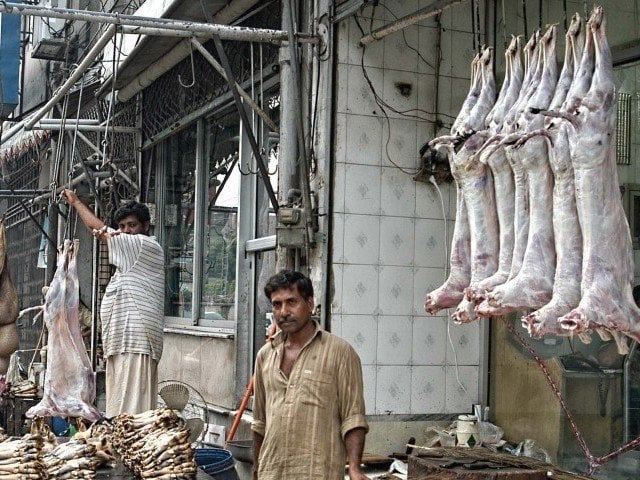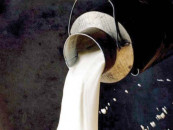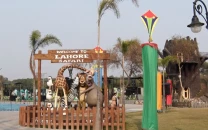Meat prices at all-time high in Rawalpindi
Butchers attribute high price to short supply of cattle caused by closure of roads

Inflation is surging and consumers are feeling the pinch from all angles. Prices of beef and mutton have gone up to an all-time high in Rawalpindi owing to the short supply of cattle caused by the closure of roads and highways in Punjab, Sindh and Khyber-Pakhtunkhwa.
The abnormal supply of animals has caused a severe shortage of beef and mutton, badly affecting consumers as well as butchers, who have resorted to jacking up the prices in the wake of supply shortages.
In Rawalpindi city and Cantonment areas, an extraordinary decrease in the sale of meat has also been witnessed in about 1000 meat shops, where three to four animals could be seen hanging in the morning, which now barely contend with only one slaughtered animal or no animal.
A large number of meat shops continue to wait for animals to be slaughtered with an influx of consumers returning home empty-handed.
On Jama Masjid Road and other areas, meat is available only at those shops who have their own animal farms and sheds.
Due to a lack of supply in the cattle market, mutton, which was sold at Rs1,600 per kg earlier, is now being sold at Rs1,800 per kg. Beef, which used to be sold at Rs800 per kg, is now being sold at Rs1,000 per kg.
A cattle seller Qurban Hussain said that animals used to be brought to Rawalpindi mostly from south Punjab, Sindh and Khyber-Pakhtunkhwa but due to the destruction caused by floods in these areas, a large number of animals have either died or fallen sick and the supply has been stopped.
He said that owing to the destruction of the road infrastructure, the movement of animals from these areas has stopped while the Rawalpindi division has fewer animal breeding farms and suppliers to cater to the increasing demand of consumers. He said that already an extraordinary decline in animal production has been witnessed in Rawalpindi, Attock, Jhelum and Chakwal districts in the rent past.
Trader Arshad Malik said that there was already a shortage of animals after Eidul Azha and now the floods have further exacerbated the situation. He said that animals are so expensive that buyers could not afford to pay the price and sell the meat for a reasonable rate after paying transportation costs and the slaughterhouse fee.
Butchers Munir Hussain, Ghulam Muhammad and Bashir Ahmed, who sell beef and mutton in Rawalpindi city and Cantonment said that the business was already slow after Eidul Azha and now the supply of animals from flood-affected areas has come to a standstill.
They said that due to floods, animals were no longer available and the existing ones are very expensive. They said that the situation will be normalised after the supply of animals resumed from flooded areas.
Citizens Muhammad Abbas Shabeer Ahmed and Qamar Waheed said that meet was not available at butchers’ shops and the ones who have, sell it for higher rates.
Meanwhile, Rawalpindi Livestock Department Additional Director Dr Naveed Sahar Zaidi said that an unusual decline in lumpy skin disease cases has been witnessed in the Rawalpindi district, but the department continues with the vaccination of animals.
He said that so far 50,500 animals have been vaccinated, while 2,600 animals affected by lumpy skin are being treated in quarantine. He said that so far 150 animals have died from the lumpy skin disease.
He said that there is no truth that the lumpy skin disease is transmitted to humans after the consumption of meat and milk of the infected animals. If an animal has a disease, it takes a toll on the milk production, he said.



















COMMENTS
Comments are moderated and generally will be posted if they are on-topic and not abusive.
For more information, please see our Comments FAQ